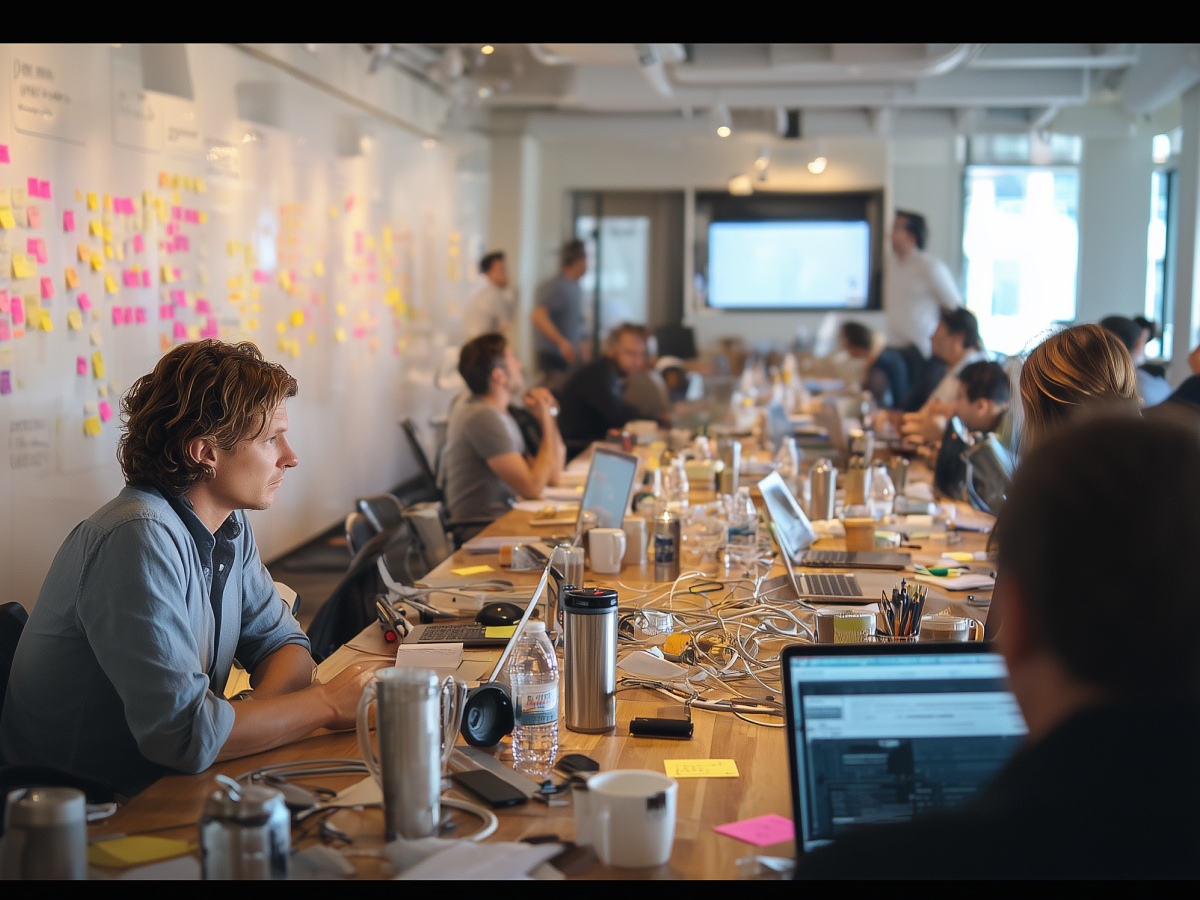Restrictive UK AI copyright measures risk degrading AI model quality and stifling innovation
AI runs on data. The more complete and diverse the training input, the better the output. When governments restrict access to training data, particularly copyrighted content, the models don’t just suffer slightly, they become fundamentally weaker. That’s what’s happening in the UK. The recent proposals from the UK government significantly limit the pool of data AI developers are legally allowed to train on. Without a full exemption for text and data mining, AI trained in the UK is likely to fall behind those built elsewhere.
AI models trained with only partial or licensed datasets will be skewed. You’re not just missing out on quantity of data, you lose crucial diversity. That kind of bias limit functionality and reduces trust in commercial applications. Bertin Martens, a senior fellow at Bruegel, calls this out directly, models will become “biased with partial information” if we continue down this regulatory path. He also points out that even the media industries, who want strong content protections, are already using AI to increase their own output. Holding back data access hurts everyone, including those pushing for restrictions.
Here’s the blunt reality: limited data means limited intelligence. You don’t get world-class AI if you hobble the engine that powers it. The U.S. and other jurisdictions aren’t making this mistake. If the UK doesn’t pivot to a more open model, it will fall behind, and quickly.
An opt-out system for copyrighted data burdens creators and brings minimal financial return
The opt-out framework sounds fair, on paper. In practice, it flips copyright norms on their head. Instead of requiring consent before using content to train AI, this regime assumes permission unless a creator takes action to say otherwise. That move doesn’t align with how IP protections are usually enforced, and it drops the compliance burden onto the very people the system is meant to protect.
More to the point: artists won’t see meaningful income even if they participate. Julia Willemyns, Co-founder of UK Day One, makes it clear, each piece of digital content holds minimal monetary value at AI scale. These models operate with trillions of data points. A single image, article, or snippet of text barely moves the needle economically. Even if licensing were globally coordinated (which it’s not), creators would still see payouts that are, in Willemyns’s words, “very, very minimal.”
This is about aligning effort with return, and keeping systems efficient. For decision-makers, this matters. You’ll face friction across your legal, compliance, and engineering teams for almost no business value in return. All while slowing access to better AI. If we’re serious about supporting creators, we need to rethink monetization models that actually deliver. Right now, this opt-out framework doesn’t.
Copyright restrictions extend their impact beyond the creative industries
When we talk about AI and copyright, most of the focus tends to land on art, writing, music, the creative side. That’s important, but it’s just one part of the equation. Benjamin White, founder of Knowledge Rights 21, highlights what often gets overlooked: academic and scientific research are equally constrained by these rules. And the stakes are arguably higher.
Universities and research institutions in the UK can’t share AI training data that includes copyrighted material, not even with trusted academic partners. NHS trusts, for example, face similar restrictions. They can’t distribute medical training datasets built from copyrighted journal articles across their own network. This blocks collaboration, limits model refinement, and slows the pace of progress in areas like diagnostics, treatments, and discovery.
The copyright law isn’t distinguishing between a song and a scientific article. It treats them the same from a legal standpoint. That creates a barrier to innovation in high-value fields where speed and accuracy matter. Science thrives on data sharing and iteration. If the legal environment prevents that, the impact isn’t just theoretical. We get slower breakthroughs, less public health insight, and fewer benefits from AI-enabled tools in medicine.
For C-suite leaders in biotech, pharmaceuticals, academic tech transfer, and healthcare systems, this issue is core to your ability to innovate. The cost is lost opportunity across sectors. A simplified text and data mining exemption would directly benefit these industries by unlocking access to high-quality, legally safe datasets and enabling more consistent cross-institution work.
Restrictive domestic policies may isolate the UK from access to superior AI models developed in more lenient jurisdictions
Strong domestic controls only work if they match global norms. If the UK implements stricter copyright laws while other countries take a more permissive, innovation-first approach, UK companies are going to be shut out of next-generation AI capabilities.
Julia Willemyns of UK Day One points out that models developed in more open regions can continue using high-quality web data, regardless of what UK law decides. Those models will be trained faster, be more versatile, and achieve better results. The UK, meanwhile, will either need to depend on inferior domestic models or scramble to negotiate exceptions. Blocking imports of those international models would deepen the disadvantage.
From a leadership perspective, this matters. If you’re making investment decisions in AI, you want to know the best tools will be available, not held back by local compliance red tape. Access to top-performing models directly affects the speed and scale at which AI can be deployed across enterprise operations. The productivity gap between companies using cutting-edge AI and those forced to work with second-tier models is going to widen.
This is a call to modernize how laws interact with data-driven technologies so they don’t isolate high-talent economies from the AI breakthroughs already shaping the global landscape.
A unified and simplified copyright regime is essential
The current UK approach toward copyright and AI is fragmented. It attempts to regulate access to copyrighted training data across sectors, creative, scientific, commercial, without offering coherence or scalability. This adds friction where there should be simplicity. Julia Willemyns from UK Day One makes a clear case: splitting regulatory oversight between different kinds of content will result in legal confusion, disproportionate court workload, increased compliance risk for businesses, and overall slower uptake of AI technologies.
AI development depends on the reliability of the surrounding legal framework. If developers, businesses, and research institutions need separate licenses, or face uncertainty about what content can or can’t be used, deployment slows. Legal ambiguity becomes a deadweight cost. There’s also the risk that courts will be forced to resolve conflicts the law could have avoided, wasting both public and private resources in the process.
For C-suite executives, this becomes a question of operational efficiency. A company can’t afford legal uncertainty when investing in AI platforms that may take years to build and deploy. Whether it’s in-house development or third-party integration, clarity in data rights is critical to forecasting ROI and scaling products confidently. A single, full exemption for text and data mining could resolve this at the framework level. It reduces the need for case-by-case risk assessments and allows technical teams to focus on performance, not red flags raised by legal.
Willemyns is right to push for an aligned legal approach. It sends a signal that a country is open for innovation, welcomes talent, and understands what AI development really requires. Complexity slows everyone down, simplification delivers immediate economic and capability dividends.
Key highlights
- Restrictive AI copyright rules reduce model performance: Limiting access to copyrighted data in AI training leads to lower model quality and biased outputs. Leaders should advocate for full text and data mining exemptions to maintain competitiveness and model integrity.
- Opt-out policies shift legal burdens without real gains: Requiring creators to opt out increases administrative load and delivers minimal revenue. Executives should support simpler, consent-based systems that offer clarity without sacrificing innovation.
- Creative-sector rules are stalling scientific progress: Current copyright law also blocks academic and healthcare institutions from effectively sharing training data. Decision-makers in science, healthcare, and education should push for exemptions to unlock collaboration and drive outcomes.
- UK firms risk falling behind in global AI race: Tighter domestic controls limit access to advanced AI systems developed abroad, slowing adoption and output. Leaders should align policy approaches with global norms to ensure their organizations remain competitive and future-ready.
- Fragmented legal regimes create operational risk: Dividing copyright enforcement by content type creates legal ambiguity that slows business adoption. Executives should champion unified copyright exemptions to avoid delays and reduce compliance friction.





